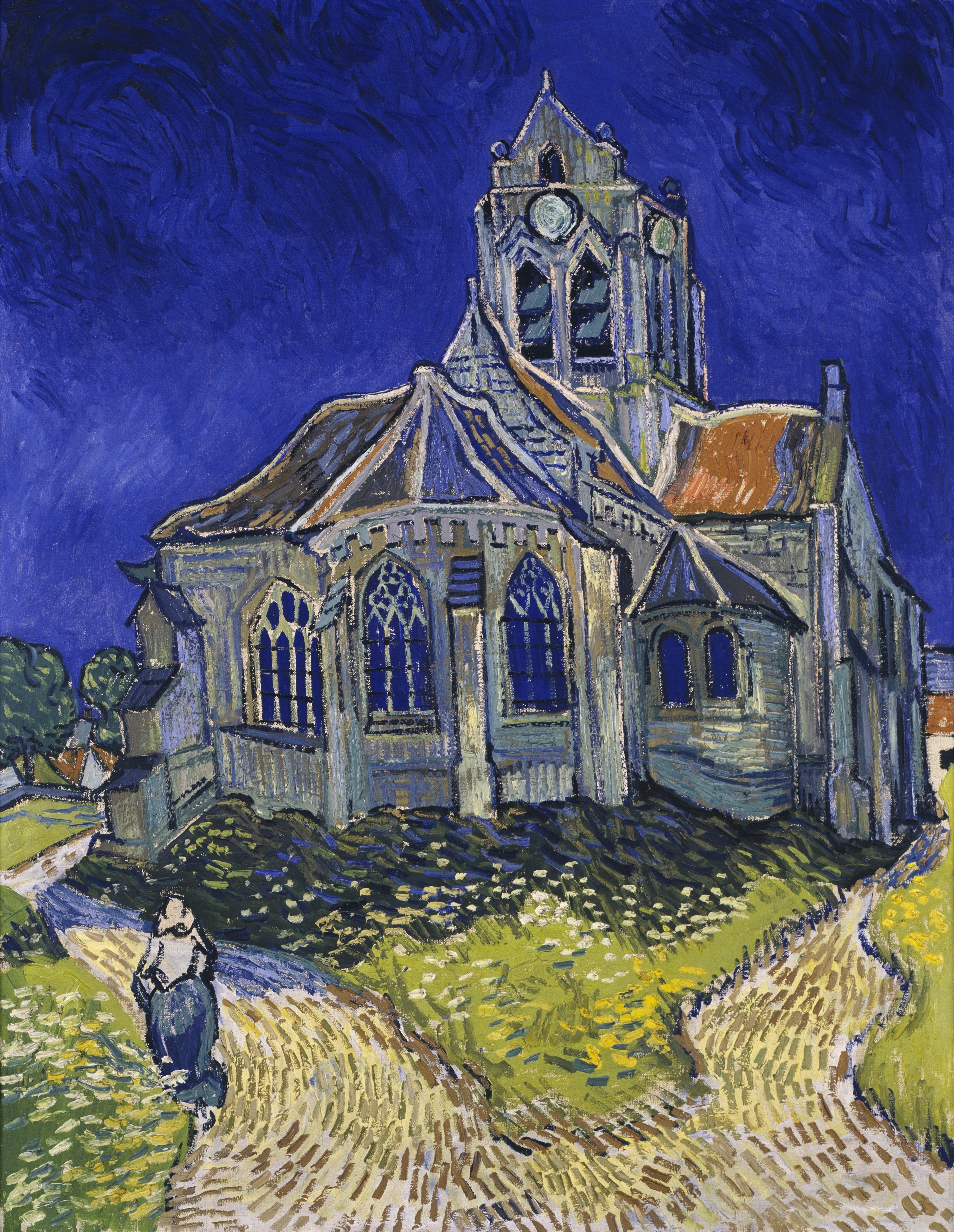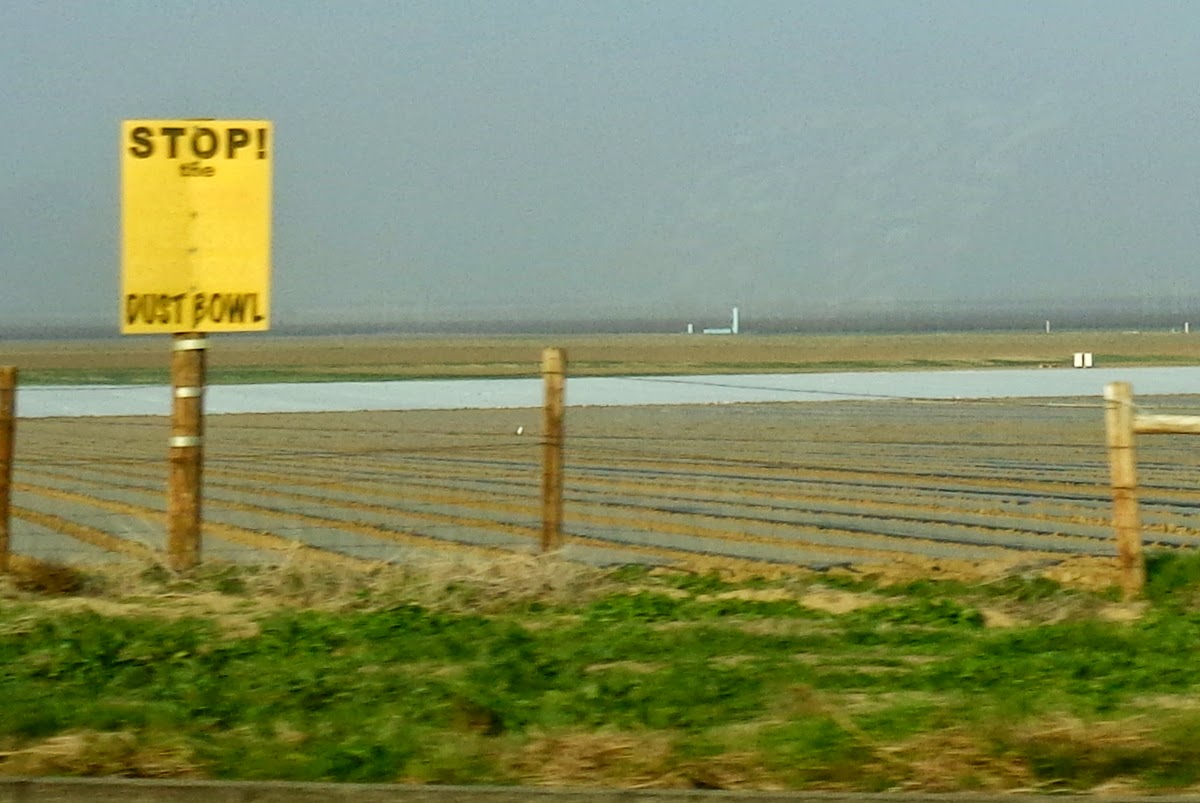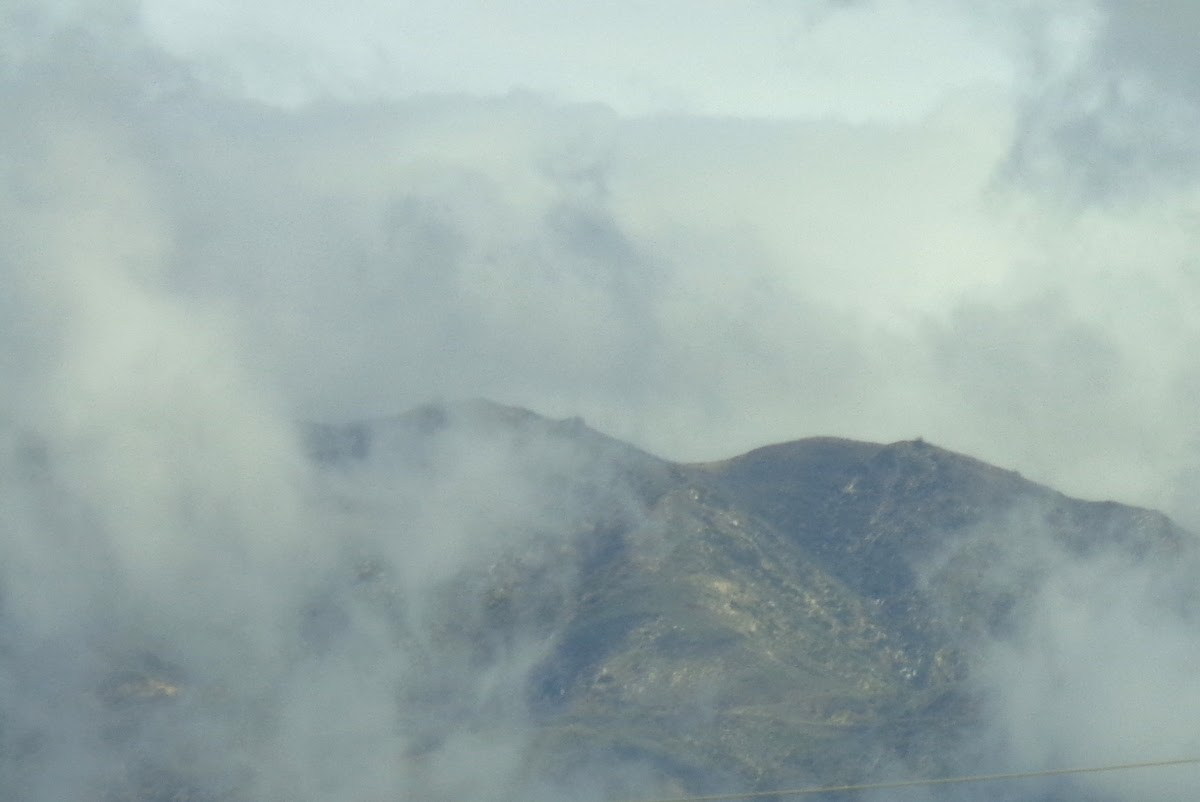


Let's start out with my admission that no sé español. And yes, I did have to look that phrase up.
Sure, I know "señor" is often "Mister," but it's
"Lord" in church. And I've watched enough Pepé le Pew that I know that "amor" is love (and yes, I know the skunk is French, but it's a common Romance languages thing). But most of what was said and read during worship in the Spanish language service of St. John's Catholic Church in Healdsburg, I couldn't comprehend -- except for the most important thing, which was Christ being honored.
This service is easily the largest regular gathering for worship (or probably regular gathering of any kind) in Healdsburg. Our guess is that the sanctuary comfortably seats about 600 people and it was packed (as we were told it is most every Sunday). Of course, Healdsburg is not unique in having a well-attended Spanish language service, and it's certainly not unique in the history of the United States.
With the flood of immigrants into the United States in the 19th Century, the Catholic Church soon overtook every individual Protestant denomination to become the leading denomination in the United States. Many church historians assumed that this took place because the immigrants were devout Catholics who came over and continued their churchgoing habits.
But church historians Roger Finke and Rodney Stark argue that something quite different happened. They argue that many from the five largest groups of immigrants (Germans, Italians, Poles, French and Mexicans) were not particularly devout in their home countries. But when they came to the States, they flocked to churches that offered a common language and traditions with the homeland they had left. They note "because Catholic parishes are geographical units, they are often very homogeneous in terms of class or ethnicity." As late as 1916, half (49%) of all Catholics in the U.S. attended a parish where a language other than English was used (at the time, of course, Latin was used in all Catholic churches, but the reference was to language used for the sermon, announcements, etc.). The church grew partly because it was a place where people's native language could be heard.

We went to two services at St. John's Sunday, an English language service at 10:00 am and the Spanish language service at noon. We were curious what differences there might be between the two services. The order of service was the same, the same priest conducted both services and both services ran about an hour. In both services we couldn't find a bulletin, though everybody around us had one, so we often had a difficult time finding the words and music to the songs being sung. There were also a number of differences between the two services, in spite of both using the order of service for the fifth Sunday in Ordinary time (as announced at both services).

Different songs were used throughout the service. Whereas in the 10:00 am service there was a piano and small choir downstairs, in the noon service there was a lively group singing in the balcony to the accompaniment of a keyboard and (maybe) other instruments. The only song I could sing along with was a chorus with the lyrics, "Aleluya, aleluya, aleluya" (which I was able to translate to "Alleluia, alleluia, alleluia").
In both services there were two offerings, one after the other; the first general and the second for the facilities. A second offering seemed to be a usual thing. We greatly enjoyed watching a very tiny girl in a pink dress gripping a dollar bill. She wandered the aisle until an usher lowered the offering basket so she could perform a slam dunk with the buck.

There were quite a few young children, members of young families, in the service. There was quite a diversity of ages, old to young. The noon sermon was in Spanglish, often sounding like this, "Spanish, Spanish, Spanish, so we must remember, Spanish, Spanish" or "So this cute little girl, Spanish, Spanish, donut". We could tell it was a different sermon from the sermon in the English service, which focused on Pope Francis. There was no mention of Francis in the noon sermon and no mention a little girl in Ukiah asking about donuts in the 10:00 am sermon. The theme of both, however, seemed to be that authentic speech has authority, as described in Deuteronomy 18:15-20 and Mark 1:21-28.

Something else that differed between the services was the celebration of the presentation of the Baby Jesus at the Temple. Many people brought specially dressed dolls representing Jesus, each crowned and sitting on a throne-like chair, to place on the platform at the front to commemorate the event.

I have to say that as a Protestant I'm not entirely comfortable with this or many other aspects of the service. Prayers to Mary and various saints, transubstantiation, icons and ceremonies like these not only make me uncomfortable but I find theologically unsound. But the Apostle's Creed was recited by the congregation, and it contains the very essence of sound theology. That does my Evangelical, Fundamentalist heart good.
-- Dean
Service Length: 1 hour
Sermon Length: 8 minutes
Visitor Treatment: nothing particular, but the "passing of the peace" at both services was warm and sincere. An acquaintance we'd seen at the 10:00 am service waited and sat with us at the noon service.
Our Rough Count: 520, or about 8 people per row
 Probable Ushers' Count
Probable Ushers' Count: 650, or about 10 people per row (according to a sign, room capacity is 1250)
Snacks: donuts and other treats for sale in front of the church afterward. We don't know for sure, but these may be individual family enterprises
Miles to Place: 10
Total California Miles: 3550
.jpg) Recently, while researching for the
Movie Churches section of this blog, I watched 1984's "Footloose".
The preacher in the film sermonizes on the moral superiority of small towns.
There are many people who feel this way. I'm not sure where this idea comes
from, because it sure doesn't come from Scripture.
Recently, while researching for the
Movie Churches section of this blog, I watched 1984's "Footloose".
The preacher in the film sermonizes on the moral superiority of small towns.
There are many people who feel this way. I'm not sure where this idea comes
from, because it sure doesn't come from Scripture. God loves the city, and through the
month of April, we'll be seeing what God is doing in four different churches in
four different cities.
God loves the city, and through the
month of April, we'll be seeing what God is doing in four different churches in
four different cities.













.jpg)











